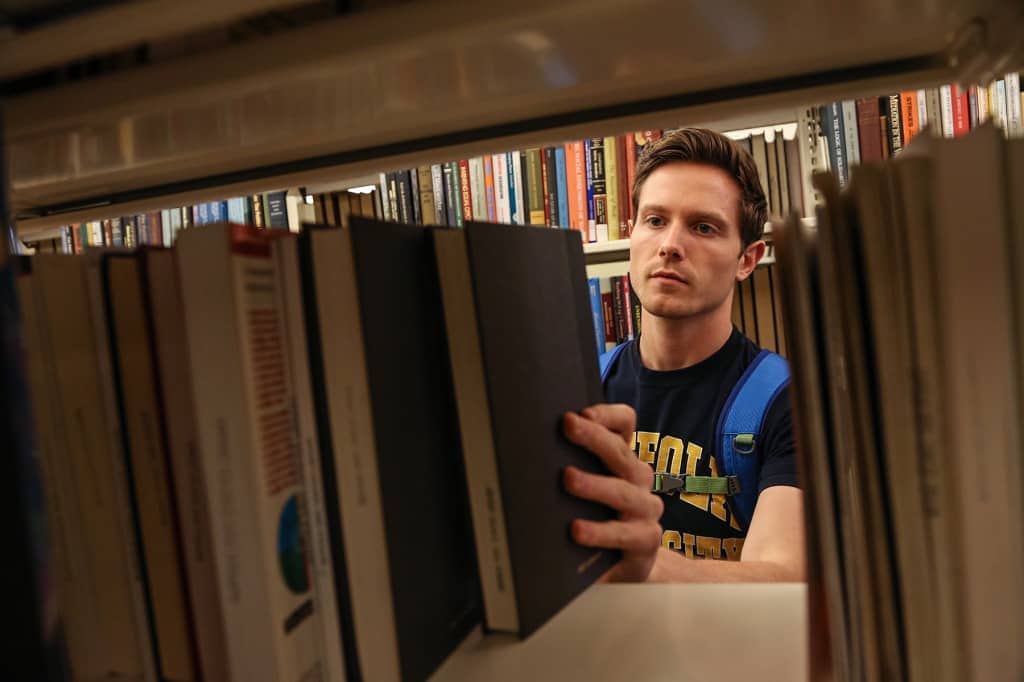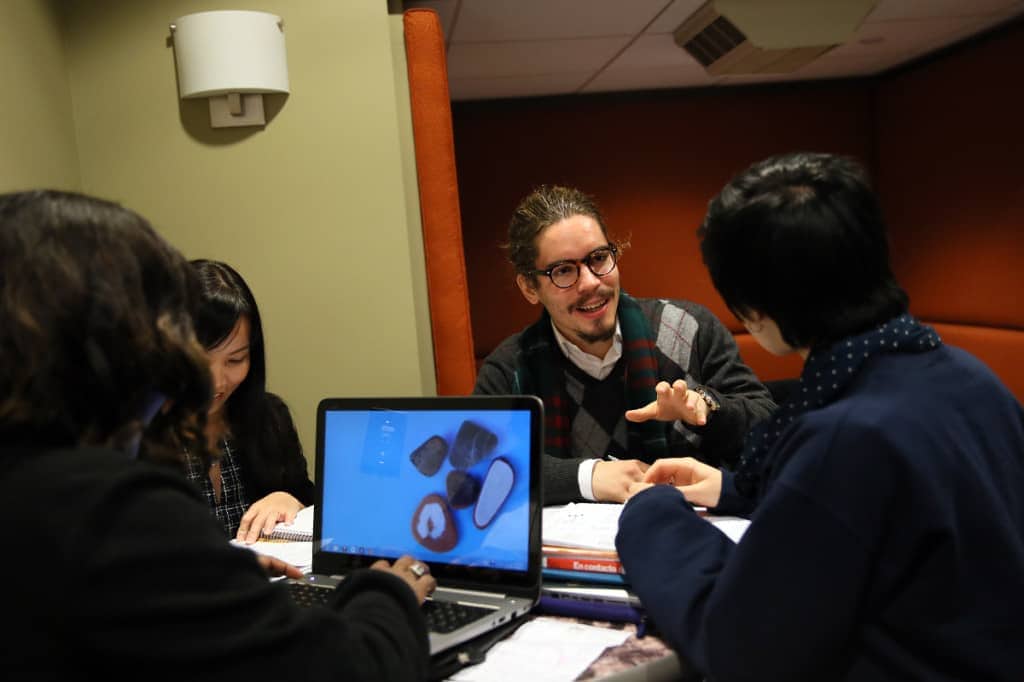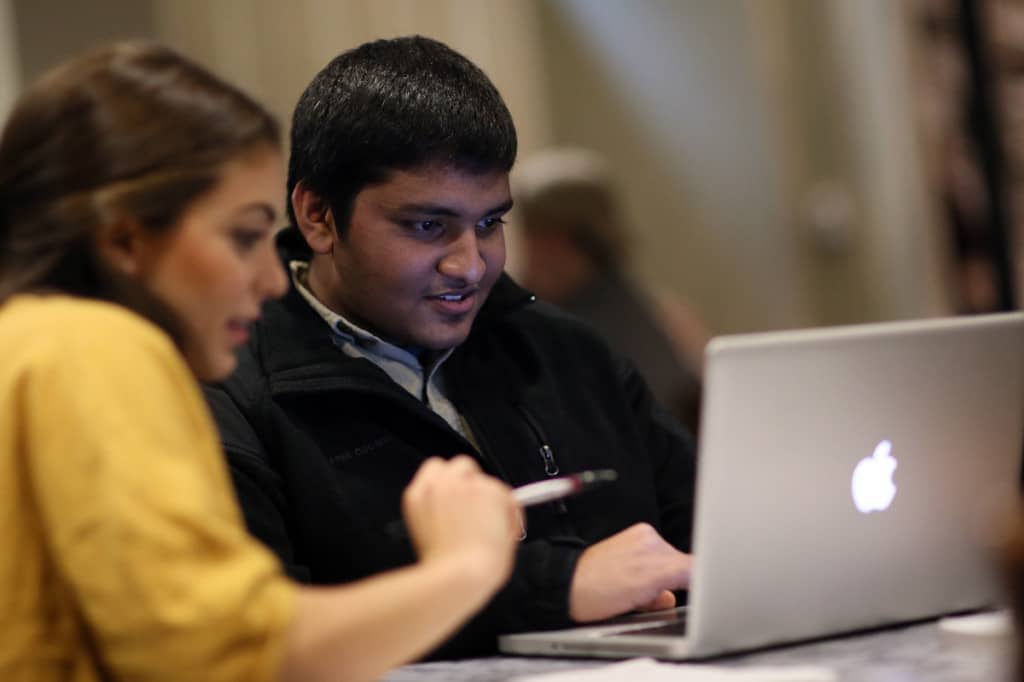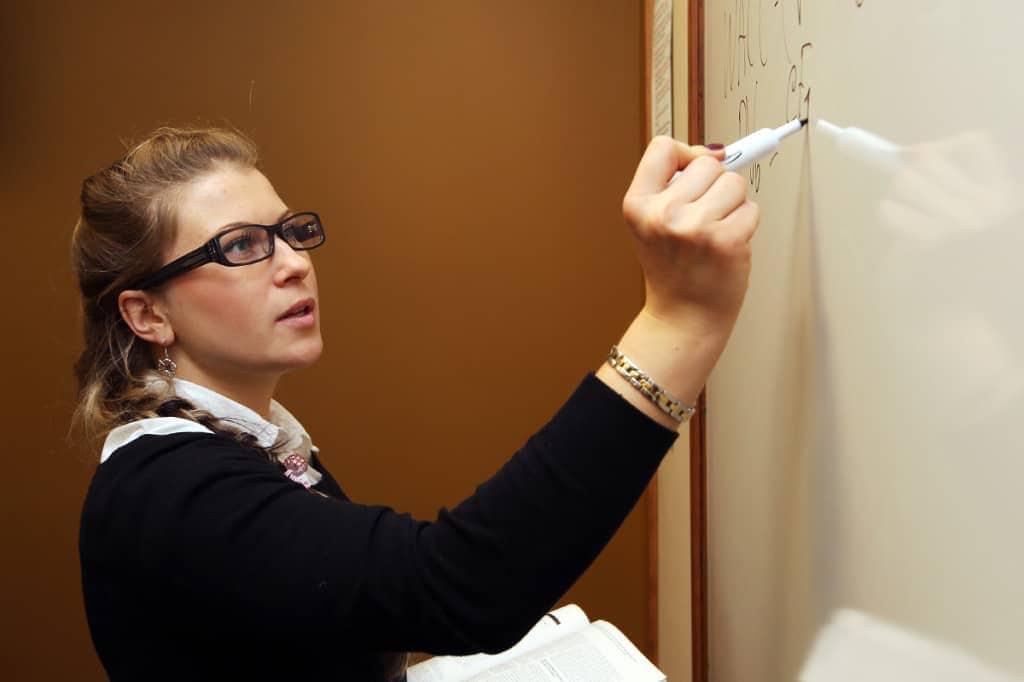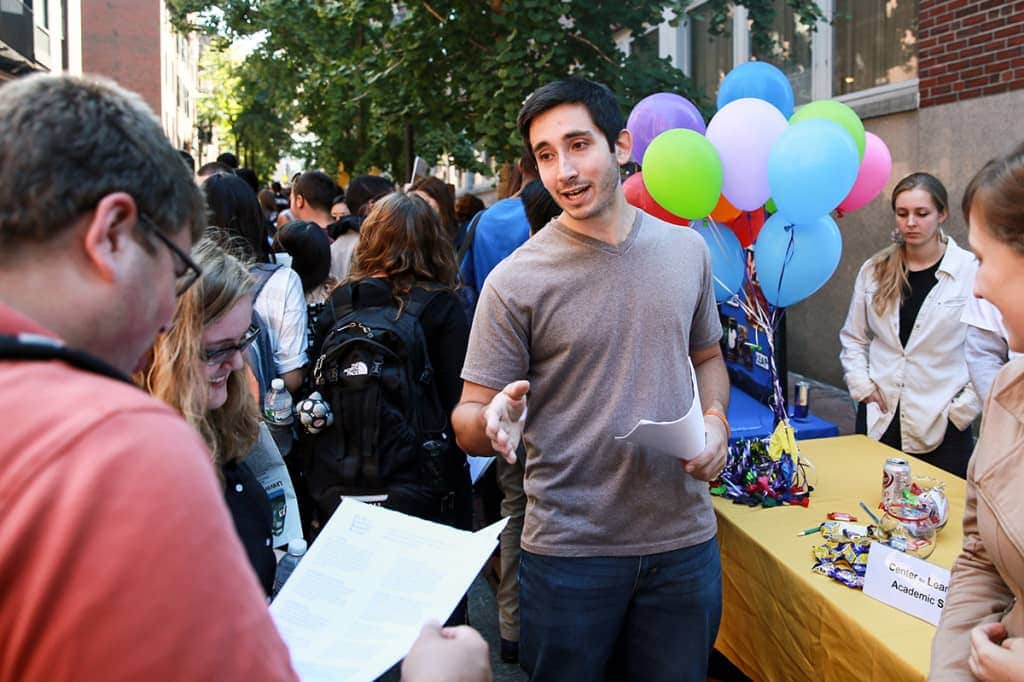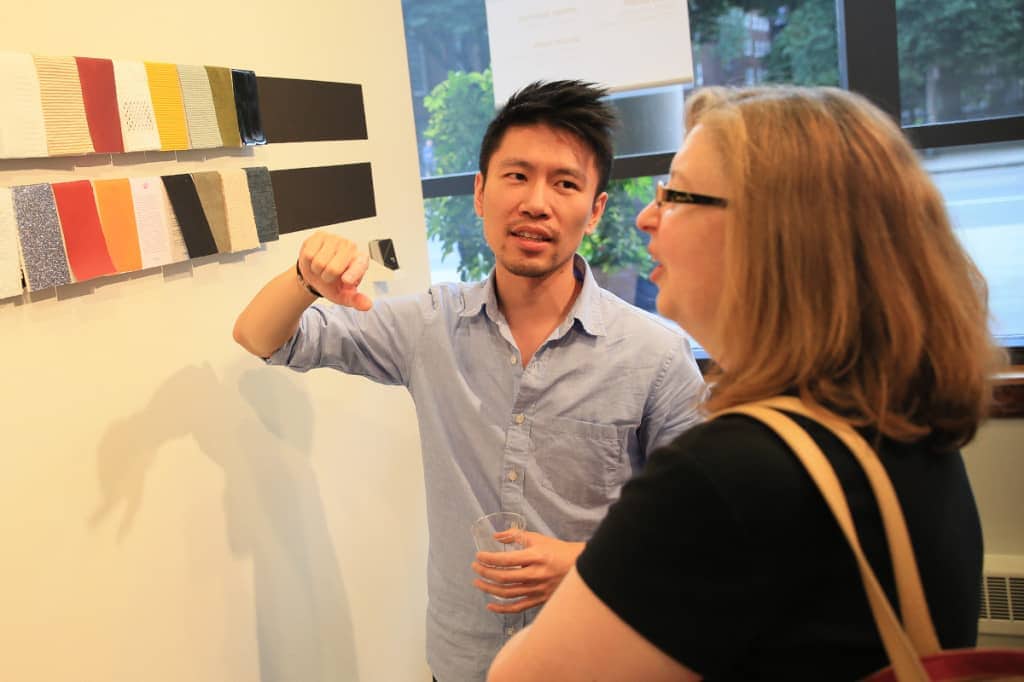Suffolk University
Boston, Massachusetts
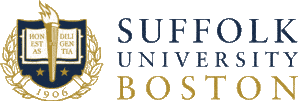
Founded in 1906, Suffolk University is a four-year, private university in the heart of Boston. Suffolk offers more than 70 undergraduate programs through the College of Arts & Sciences and Sawyer Business School. Suffolk’s location in downtown Boston gives students unparalleled access to many opportunities in the Boston metro area, including prestigious internships and job placements. Upon earning their undergraduate degrees, students may pursue advanced studies at the College, the Business School, or Suffolk University Law School.
Get to know Suffolk University
Benefits
Student Activities
- Campus Ministries
- Choral groups
- Dance
- Drama/theatre
- International Student Organization
- Literary magazine
- Model UN
- Music ensembles
- Musical theatre
- Radio station
- Student government
- Student newspaper
- Television station
- Yearbook
High-Impact Practices
- First-Year Seminars and Experiences
- Learning Communities
- Writing-Intensive Courses
- Collaborative Assignments and Projects
- Diversity/Global Learning
- Service-Learning, Community-Based Learning
- Internships/Coops/Practica
- Capstone Courses and Projects/Senior Experience
Campus Resources
- Center for Academic Access & Opportunity
- Career Services
- Writing Center
- Academic Advisors
- Library Services
- Disability Services
- Multicultural Engagement Center
- Health Services
- Academic Tutors
- Veteran Services
- Peer Mentors
- Counseling
College Highlights
COMMON INTELLECTUAL EXPERIENCES
While Suffolk students represent diverse backgrounds and interests, they must fulfill common core requirements.
In the Sawyer Business School, undergraduates follow a curriculum that emphasizes these four themes: innovative thinking, problem-solving, professionalism, and the development of culturally, socially, and globally diverse perspectives.
COLLABORATIVE LEARNING
Suffolk’s academic offerings reflect today’s employers’ demand for collaborative learning. Many of the largest classrooms in the University’s newest academic building were built to promote team-based learning: students sit at communal tables instead of individual desks, enjoying the technological means to present each of their group’s findings to the class. This approach applies equally to science students in the lab, marketing students working on case studies, and everyone else. Study groups for individual courses are also available through the Center for Learning & Academic Success.
ENGAGING RESEARCH
The University Honors Program features outstanding academic opportunities, mentoring, and special events from orientation through graduation. Honors students in the College of Arts & Sciences must complete an honors project in their senior year, which may take the form of an original work, fieldwork, or research with a faculty member. In the Sawyer Business School, honors students can focus on research in special Challenge Courses.
Students throughout the University pursue meaningful research projects. They can partner with professors to conduct polling for the nationally lauded Political Research Center, heal communities through the Center for Restorative Justice, and much more.
Furthermore, the University’s McNair Scholars Program inspires first-generation or income-eligible students to pursue research at the doctoral level.
REFLECTING OUR DIVERSE WORLD
Suffolk has a longstanding tradition of welcoming students from diverse backgrounds to campus. Students of color composed 30 percent of the student body in 2015. Suffolk has convened a task force on diversity to further bolster the University’s commitment both to fostering an inclusive, welcoming community and to serving as an example for other institutions in Greater Boston. The Office of Diversity Services is a dedicated resource for Suffolk’s AHANA and LGBTQ communities. Cultural associations and their programming throughout the year reflect the rich diversity found here.
AT HOME IN THE WORLD
Select freshmen have the chance to complete up to their first two years of undergraduate studies abroad at Suffolk University’s Madrid Campus, one of the only such opportunities in the United States. Students may also spend a semester, academic year, or summer at either Suffolk Madrid or one of the University’s other study abroad offerings on six continents. Students in the Sawyer Business School may choose to investigate the business culture of another country on a Global Travel Seminar, while art and design students can explore masterpieces abroad on special study-tours.
ENROLLMENT BY ETHNICITY
Non-U.S. Citizen: 17%
Hispanic/Latinx: 15%
Black or African American, non-Hispanic: 6%
White, non-Hispanic: 49%
Native/Indigenous American or Alaska Native, non-Hispanic: 0%
Asian, non-Hispanic: 8%
Native Hawaiian or other Pacific Islander, non-Hispanic: 0%
Two or more races, non-Hispanic: 3%
Race and/or ethnicity unknown: 4%
A PLACE TO LEARN
Suffolk students don’t just pursue academic majors; they live them. Entrepreneur students develop original ideas and make them a reality. Government majors gain real-world experience in politics at the State House and in Suffolk’s Campaign Lab Summer Institute. History students visit the sites that helped inspire the American Revolution. Environmental studies and science majors conduct fieldwork at the R.S. Friedman Field Station, a living laboratory for observing and studying marine life on the coast of Maine. Business students apply their knowledge at firms in the Financial District and beyond. Learning never stops here.
Suffolk’s most popular programs include communication & journalism, entrepreneurship, psychology, marketing, accounting, finance, and international business.
THE FIRST-YEAR EXPERIENCE
All undergraduates at Suffolk take a First-Year Experience course that’s designed to make their transition to college life easier. SBS 100 and CAS 101 focus on academic skills and resources, personal development, career and professional preparation, and campus resources and involvement.
Additionally, College of Arts & Sciences students take a Seminar for Freshmen in their first semester. Kept to a maximum of 19 students, each seminar offers an in-depth look at topics ranging from the Beatles’ role as cultural avatars of the 1960s to global climate change, contemporary urban challenges, the meaning of life, and more.
THE WRITTEN WORD
Two required writing courses introduce all students to the process of crafting college-level expository and persuasive writing. Together, they ensure that Suffolk students across all majors are prepared to produce logical, well-written essays and assignments throughout their four years on campus.
AN EXCITING, URBAN UNIVERSITY
Boston is the quintessential college town, home to about 300,000 students from all over the globe. Its dynamic intellectual energy is unmatched by any other city. There are no real borders to the University’s campus—Boston and Suffolk simply blend together to create a vibrant urban dynamic that students enjoy every day.
More than 120 student organizations—including performance groups, two student newspapers, and Suffolk’s Center for Community Engagement—demonstrate the University’s commitment to student involvement. Whether it’s through internships, community service, or working at local businesses, students are empowered and encouraged to interact with the city around them.
Opened in 2015, Suffolk’s athletics fields and complex give the Rams a new home base. The facility boasts upgraded amenities for the baseball and softball teams as well as more seating for their fans.
LOCATION. LOCATION. TRANSFORMATION.
At Suffolk, students study just steps away from City Hall and the Massachusetts State House, a few blocks from Boston Common and Faneuil Hall, and a short T ride from pretty much everything else Boston has to offer.
Suffolk’s prime location affords easy access to internships with such notable organizations as Arnold Worldwide, Boston Police Crime Lab, Ernst & Young, Massachusetts State House, Massachusetts General Hospital, and many, many more.
COMMUNITIES ON CAMPUS
Students with specialized academic interests can choose to live with their fellow majors in Living-Learning Communities (LLCs), all of which are housed in a residence hall and feature a mandatory class that LLC participants take together. This is a great way for students to bond with their peers and discover all that they can do with their academic majors and interests. Currently, Suffolk has LLCs in these areas of focus:
- Accounting & Finance
- Explorations (for undeclared majors in both the College of Arts & Sciences and the Sawyer Business School)
- Government, Applied Legal Studies, & Pre-Law
- Honors (for Honors Program participants in both the College of Arts & Sciences and the Sawyer Business School)
- Leadership
- Social Justice & Community Engagement
- Sustainability, Science, & Health
- Visual & Performing Arts and Design
SCHOOL LOCATION
Suffolk University is located in the heart of downtown Boston, steps away from such iconic sites as the Massachusetts State House, Faneuil Hall, and Quincy Market. Suffolk also operates an international campus in Madrid, Spain, and a satellite location in Lawrence, Massachusetts.
ATHLETICS
Student-athletes at Suffolk compete in the NCAA’s Division III and the Great Northeast Athletic Conference. The Rams play on 13 varsity sports teams—seven men’s (baseball, basketball, cross country, golf, ice hockey, soccer, tennis) and six women’s (basketball, cross country, soccer, softball, tennis, volleyball). Rammy—Suffolk’s mascot—leads fans in cheering for their favorite players in blue and gold.
RESIDENCE LIFE
Percent of students living on campus.
First-time, first-year (freshman) students: 70%
Undergraduates: 25%
Campus housing options.
Coed dorms
Apartments for single students
The University currently welcomes students who represent 103 countries and 45 states. Suffolk gives them the tools they need to make the most of every opportunity that comes their way and to be successful after graduation.
THE CENTER FOR COMMUNITY ENGAGEMENT
More than 1,500 students are involved in community work through Suffolk’s Center for Community Engagement. These volunteers work more than 29,000 hours on community service projects during a given year.
Students may pursue service learning in more than 60 classes in subjects ranging from government to sociology to world religions. Class participants link their knowledge to real-world settings throughout Greater Boston.
Those seeking community service opportunities can volunteer on Spring and Winter Alternative Break programs in the US and abroad. Closer to home, students can volunteer with supper clubs for the homeless, a program that provides books to prisoners, and local students who aspire to attend college or Boston exam schools.
THE CAREER DEVELOPMENT CENTER
The University’s career assistance programs begin practically on day one and help prepare students for life after graduation. From the moment they arrive on campus, students can take a career-assessment test, visit the career library, and meet with counselors at the Career Development Center. In their sophomore year, students are encouraged to select a major and shadow alumni who work in their chosen field. Juniors can visit the center to revise their resumes and interview with employers for internships. On-campus recruiting helps seniors find jobs with companies such as the Boston Celtics, Digitas, the US Department of Transportation, and many more. Specialized tools and programs such as Ram Recruiter and the newly launched Ram Alumni Mentoring Program help undergraduates identify job opportunities and valuable networking connections who can help them develop their careers.
As a result of these efforts, 93 percent of Suffolk’s Class of 2014 who responded to a Career Development Center survey reported that they are employed or in graduate school.
SENIOR YEAR SPECIAL OPPORTUNITIES
Regardless of their majors, students are encouraged to enhance their undergraduate studies during their senior year. They may choose to take capstone courses that synthesize their knowledge of their chosen fields or undertake theses for departmental honors. Entrepreneurship majors can work closely with successful alumni as part of their capstone experiences, while psychology majors take one of two specially designated capstone courses. See here for more on senior-year opportunities. Advisors in the Undergraduate Academic Advising Center help students plan their courses of study through all four years.
Admission
ADMISSIONS FACTORS
Very Important
Rigor of secondary school record | Academic GPA
Important
Class rank
Considered
Standardized test scores | Application Essay | Recommendation(s) | Interview
Extracurricular activities | Talent/ability | Character/personal qualities | First generation
TEST SCORES
Optional
FRESHMAN PROFILE
SAT Evidence-Based Reading and Writing
25th Percentile: 510 | 75th Percentile: 613
SAT Math
25th Percentile: 500 | 75th Percentile: 590
ACT Composite
25th Percentile: 21 | 75th Percentile: 26
UNIVERSITY HONORS PROGRAM ADMISSION
Each year, a select group of incoming students is offered admission into the University Honors Program. These students typically present an academic profile that places them in the top ten percent of their senior class with an academic GPA of 3.7 and standardized test scores above either 1900 (SAT) or 31 (ACT). Additional information about the University Honors Program can be found at suffolk.edu/honors.
Tuition & Cost
Tuition: $41,242
Fees: $406
Room: $14,000
Board: $3,462
Aid
Suffolk proudly offers one of the most affordable private university educations in the Boston area. The University is committed to helping students find the best way to finance their education.
Federal programs offer grants, low-interest loans, and employment programs.
The Commonwealth of Massachusetts awards loans and grants to state residents who demonstrate financial need.
The University, along with private agencies and organizations, awards scholarships, grants, and loans to students when their personal and family resources cannot meet the cost of higher education.
MERIT SCHOLARSHIPS
Applicants are automatically considered for merit-based aid upon applying. Merit scholarships and achievement grants are competitive and limited, and are based on students’ academic credentials (GPA, test scores, etc.). Recipients typically have an academic GPA of 2.8 (4.0 scale) or higher. Award amounts vary.
Contact Suffolk University
Contact Admissions
suffolk.edu/admission/undergraduate
(617) 573-8460
admission@suffolk.edu
Campus Location
73 Tremont Street
Boston, MA 02108
(617) 573-8000
